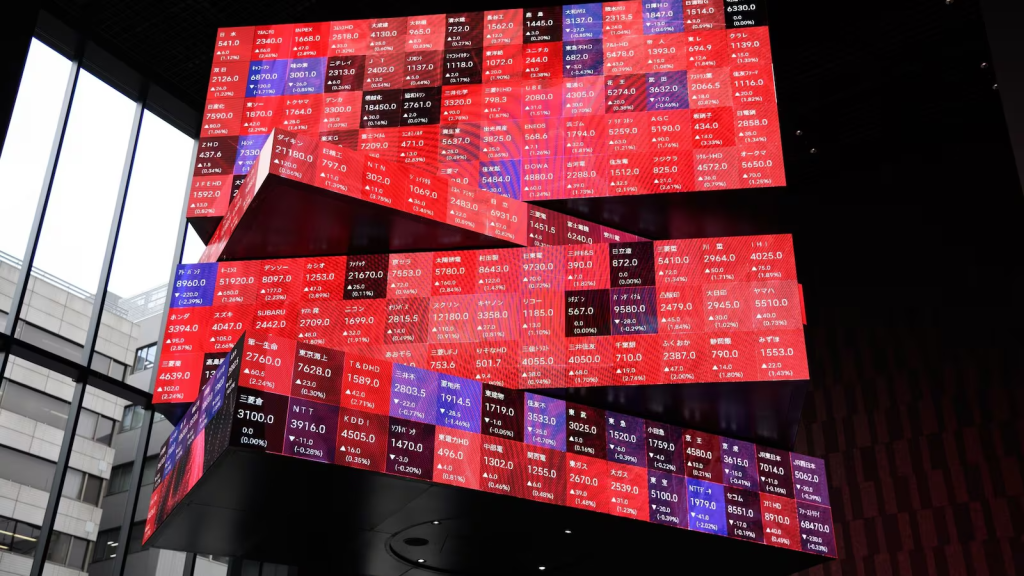Japanese companies have sold the most shares to the public in two decades, highlighting how not even an equity rout last month has damped investor demand for new stocks.
Corporations from automaker Honda Motor Co. to shoe company Asics Corp. have conducted at least 80 deals including initial public offerings, additional share sales and equity-linked bond issuance totaling about ¥2.9 trillion ($20.5 billion) so far in the fiscal year started April 1. That’s the most for the period since fiscal 2004, with some saying the annual tally could double from the year-to-date levels.
The world-beating record rally in Japanese shares this year has stalled, with a 12% plunge in both the Topix and Nikkei 225 gauges on Aug. 5 underscoring the risks of putting money into already high-flying equities. That’s prompted investors in Japan to search for assets with better returns, and one area they’re looking at are IPOs that tend to gain sharply on the first days of trading.
Japan’s share surge was driven in part by policymakers pushing companies to boost returns for their shareholders and cut cross-shareholdings with other firms that tended to limit competition.
“The unwinding of cross-shareholdings and IPOs are the drivers for the nation’s equity capital market,” said Shu Nagata, the head of Japan Global Capital Markets at BofA Securities in Tokyo. He said there’s momentum that could push up deals to more than 200 and ¥6 trillion in value this fiscal year.
Japanese equity deals haven’t broken above ¥6 trillion since fiscal 2009.
Corporate managers in Japan are improving governance standards with the aim of boosting shareholder approval, and they are paying more attention to capital allocation, driving activity in the equity capital market, Nagata said.
Investing in Japanese IPOs isn’t without risks. Shares in 38 IPOs in the first half soared an average of 40% when they started trading, but their first-month returns were often a fraction of the initial gains.
Still, several planned deals that are likely to be big are in the pipeline including potential Tokyo bourse listings by subway operator Tokyo Metro Co. and semiconductor memory product maker Kioxia Holdings Corp.



